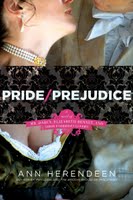
Anybody who’s read my first novel, PHYLLIDA AND THE BROTHERHOOD OF PHILANDER, knows I’m unlikely to have much in the way of heartwarming holiday stories. The morning scene of carnage when I was a child is the standard one for twentieth-century middle-class households: exhausted parents, too many toys, and the day ends in tears as the cat pulls the tree over onto the neighbor’s toddler.
But once I learned to read, and received a book or two at Christmas, there was a shift in mood. From driving my parents crazy only by proxy, with thousands of Lego parts scattered on the living-room floor or the umpteenth iteration of Chatty Cathy’s limited repertoire of phrases, I was now able to torment them directly. E.B. White’s CHARLOTTE'S WEB was my first weapon of choice. Although I claimed to read it “all by myself,” this is something of an exaggeration. For one thing, I needed help with the longer or less familiar words, and most of the subtleties --- such as the farm family named “Arable” --- were lost on me. For another, I found the experience so delightful --- the characters, the story, and the amazing concept of an entire imaginary world brought to life through words printed in ink on paper --- that I felt an irresistible, and surely admirable urge to share my happiness. And thus began my habit of targeted reading aloud, to make sure nobody missed any of the great lines. My favorite was the cynical rat, Templeton, telling the other nervous animals as he rolled a rotten goose egg away, “I know what I’m doing. I handle stuff like this all the time.” That struck my five-year-old self as priceless --- and it still does; which is why, I suppose, I write comedy.
The next torture session occurred a few years later with THE PHANTOM TOLLBOOTH, by Norton Juster. This was something new: an entire book based on figures of speech and clichés, cobbled together to make an actual story with characters and a plot. I had never heard many of these terms, or not often enough to know they were common phrases, and as the sophisti
I don’t mean to discount the excellent illustrations, by Garth Williams (CW) and Jules Feiffer (PT) --- only that, even then, words stimulated my imagination more than pictures. Never in my wildest dreams could I be a visual artist, whereas playing with words…maybe, someday, that I could do.
The entire universe went briefly out of whack when I was fourteen. With my father unemployed, there could be no expensive presents. My parents borrowed books from the public library and --- oh, sacrilege! --- read them aloud to each other! The biggest hit was a set of Robert Benchley humor pieces. While I sat in the next room, sobbing in adolescent rapture over WUTHERING HEIGHTS, my parents, equally tearful, howled with laughter at Benchley’s explanation of the surest way to get up on time in the morning: have someone burst into the bedroom with the announcement, “The men are here for the trunks.”
Luckily, things righted themselves soon enough. And I think those first books led me inevitably to where I am now, navigating the treacherous terrain between comedy and romance, between the lighthearted and the profound, still searching for the Happy Medium giggling over her crystal ball, as portrayed by Madeleine L’Engle in A WRINKLE IN TIME. But by that Christmas, thank goodness, I had learned to read silently to myself.
-- Ann Herendeen
This evening, Gwen Cooper fondly remembers a thoughtful 3rd grade English teacher who sparked her lifelong love of Greek mythology.

